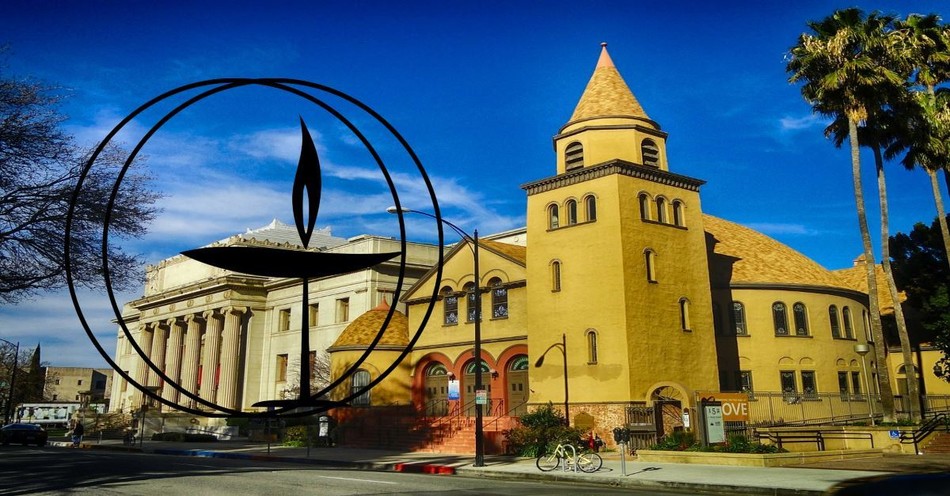Unitarianism, a Christian belief that challenges the Trinity, asserts that God is a single entity rather than three distinct forms. Unitarian Churches, which adhere to the doctrine of Unitarianism, are organized both nationally and locally in the United States and the United Kingdom. In this article, we will delve into the captivating history and beliefs of Unitarianism and the Unitarian Church.
Meaning of Unitarianism
Unitarianism is a theological movement that takes its name from the belief that God, in Christianity, is a single person, contrary to the concept of the Trinity. While the Trinity defines God as three forms in one being (the Father, Son, and Holy Spirit), Unitarian Christians maintain that Jesus was inspired by God in his moral teachings, but he was not a divine being or God incarnate. Unitarianism encompasses various Christian groups, both existing and defunct, that share a similar theological notion of the singular essence of God.
History of Unitarianism
The roots of Unitarianism as a Christian denominational group of churches can be traced back to the late 16th century in Poland-Lithuania and Transylvania. However, its development and refinement took place in England and America until the early 19th century. The origins of Unitarianism can even be found in the early days of Christianity, with many Unitarians considering their Christology to closely align with that of the “original Christians.”
Unitarianism gained prominence in England during the Enlightenment, evolving into a formal denomination in 1774 when Theophilus Lindsey organized gatherings with Joseph Priestley. These gatherings led to the establishment of the first publicly recognized Unitarian congregation in England, known as the Essex Street Church in London.
In America, the first formal recognition of Unitarian beliefs within a congregation occurred at King’s Chapel in Boston. Under the leadership of James Freeman, the church transformed the Prayer Book into a tempered Unitarian liturgy in 1785. The Brattle Street Church in Boston, led by Joseph Stevens Buckminster in 1800, played a crucial role in the subsequent development of Unitarianism in New England through his sermons, literary projects, and knowledge of the German “New Criticism.”
Origins of the Unitarian Church
The Unitarian Church in Transylvania was first acknowledged by the Edict of Torda, issued by the Transylvanian Diet under Prince John II Sigismund Zápolya. It was initially led by Ferenc Dávid. The term “Unitarian” emerged as “unitaria religio” in a text of the Diet of Lécfalva, Transylvania, in October 1600. However, it wasn’t widely adopted in Transylvania until 1638 when the formal recepta Unitaria Religio was published.
Beliefs of the Unitarian Church
Unitarians emphasize the belief in strict monotheism, distinguishing themselves from other Christian denominations that adhere to the Trinity. While Unitarians acknowledge Jesus as a remarkable man and a prophet of God, they do not consider him to be God himself. They argue that Jesus never claimed to be God and that his teachings do not imply the existence of a three-part God. Unitarians believe in the moral authority of Jesus but not necessarily his divinity. This stance sets them apart from trinitarian theology.
In the early 19th century, Unitarian Robert Wallace identified three distinct classes of Unitarian creeds in history:
- Arian: This group believed in the pre-existence of the Logos but maintained that Jesus was created and existed solely as a human.
- Socinian: Socinians rejected Jesus’ original divinity but accepted that he should be worshipped.
- Strict Unitarian: This group, believing in the “incommunicable divinity of God,” denied the presence of the Holy Spirit and the worship of “the man Christ.”
While Unitarian beliefs encompass a range of perspectives beyond the denial of the Trinity, there are several commonly affirmed principles:
- One God and the oneness of God.
- The life and teachings of Jesus Christ serve as the ultimate model for living.
- Reason, rational thought, science, and philosophy are in harmony with belief in God.
- Humans possess the capacity for free will and should exercise it responsibly, constructively, and ethically with the guidance of religion.
- Human nature, in its current state, is neither inherently corrupt nor wicked but has the potential for both good and evil, as intended by God.
- No single religion can claim a complete monopoly on the Holy Spirit or theological truth.
- While the writers of the Bible were inspired by God, they were also human and therefore subject to human error.
- Common doctrines such as predestination, eternal damnation, and the vicarious sacrifice and satisfaction theories of the Atonement are considered invalid by Unitarians as they misrepresent God’s character and distort the true nature and purpose of Jesus Christ.
Unitarianism and Society
The Unitarian Church has played a significant role not only in theological discussions but also in advocating for social justice and progressive causes. Unitarians have been at the forefront of movements such as abolitionism, women’s rights, LGBTQ+ rights, and environmentalism. The emphasis on reason, ethical living, and the inherent worth and dignity of every individual has propelled Unitarians to actively engage in social reform and contribute to the betterment of society.
Unitarian Church Today
Today, Unitarian Churches can be found in various parts of the world, with a significant presence in the United States and the United Kingdom. These churches typically operate at both a national and local level, providing a sense of community and a platform for spiritual exploration and growth. Unitarian congregations often embrace diversity and welcome individuals from different religious backgrounds, promoting an inclusive and open-minded atmosphere.
Conclusion
Unitarianism offers a distinct perspective within the realm of Christianity, emphasizing the belief in a single God and rejecting the concept of the Trinity. The Unitarian Church has a rich history that dates back centuries, with roots in Europe and a significant presence in England and America. Through its focus on reason, ethical living, and the teachings of Jesus, Unitarianism has shaped the beliefs and values of its followers. Today, Unitarian Churches continue to foster spiritual growth, promote social justice, and provide a welcoming community for individuals seeking a progressive and inclusive religious experience.




No comments! Be the first commenter?